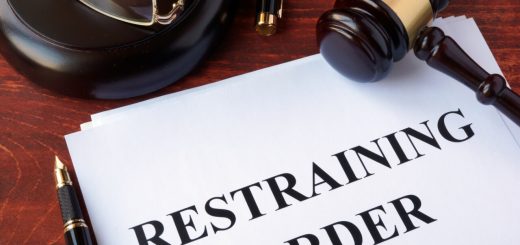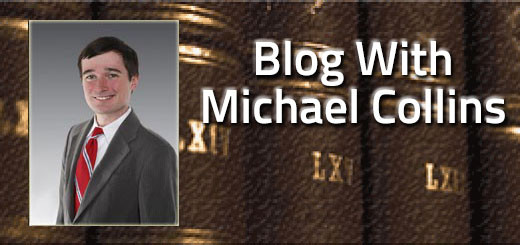How Bankruptcy Can Help With Foreclosure

Are you finding it difficult to make your mortgage payments? If so, you might be facing foreclosure on your house especially if you’ve missed multiple payments. Thankfully, declaring bankruptcy could allow you to maintain ownership of your house.
Depending on the extent of mortgage arrears, filing for bankruptcy may or may not help prevent foreclosure permanently. It also depends on the type of bankruptcy you are filing.
Before you decide on the type of bankruptcy, you should have a clear understanding of foreclosure.
Foreclosure Basics: What Is Foreclosure?
Generally speaking, the type of loan determines how the foreclosure process unfolds. A foreclosure occurs when homeowners fall behind on monthly mortgage payments, regardless of the exact state statute.
The mortgage lenders foreclose on the debt if they are unable to make up the difference in a timely manner. The lenders either sell the house to a third party (known as a foreclosure sale) at auction or take possession of it during the foreclosure proceedings.
There are nonjudicial and judicial foreclosures – when lawsuits against homeowners are involved in all foreclosures. When it comes to nonjudicial foreclosures, lenders can often foreclose without having to go to court. This means the state court isn’t involved. On the other hand, a lawsuit must be filed in state court in judicial foreclosure states.
There are three basic options to handle foreclosure, such as:
- Right of redemption
- Deficiency balance
- Home equity
Through the foreclosure process, mortgage lenders take back homes when the payments are not completed on time. The process includes a few steps, and it usually begins when there are 3 or 4 unpaid installments.
Related: Can you file bankruptcy and keep your house and car
Bankruptcy Process: The Basics
Now that you know more about the foreclosure process, you should also learn more about the bankruptcy process. Each bankruptcy case is specific. However, you can generally face two cases during the bankruptcy process:
- Automatic stay
- Motion to lift the stay
Automatic Stay
A feature of bankruptcy law known as the automatic stay prohibits creditors from pursuing any form of collection action following the filing of a bankruptcy case. That goes beyond phone calls as well as income garnishments. Additionally, it also puts an end to the foreclosure process completely.
Real estate loans can be regarded as secured debts. What you do from there will depend on the type of bankruptcy filed. Remember that an automatic stay will be put into place immediately after you file for either Chapter 13 or Chapter 7 bankruptcy. It will demand your creditor stop any collection efforts.
The automatic stay can legally postpone (typically for 3 to 4 months) any scheduled foreclosure sale of your house by your lender while the bankruptcy process is still proceeding. In Chapter 7, there’s an exception to that rule – it’s known as a motion to lift the stay.
Motion to Lift the Stay
Before filing for Chapter 7 bankruptcy, keep in mind that your lender can take advantage of this exception. If a motion to lift the stay is granted, there will not be the typical 4-month lead time before the house sale. Nevertheless, you will still have at least 2 months before selling the home.
So if you want to keep your house in foreclosure, go for Chapter 13. In that case, Chapter 7 bankruptcy is not a good choice. Your best bet is to consult a bankruptcy attorney regarding foreclosure and learn more about your options.
Which Bankruptcy Chapter Can Stop Foreclosure?
As you may already know, there are two main types of bankruptcy: Chapter 7 and Chapter 13. You probably wonder which one can stop your foreclosure process. Read on to find out.
Chapter 7 Bankruptcy and Foreclosure
Can bankruptcy stop a foreclosure when filing for Chapter 7? Not really. Even exemptions will not be able to protect your house from getting liquidated in order to repay creditors. Chapter 7 can only buy you some time.
Also, Chapter 7 can cancel debts (like home equity loans and junior mortgages) secured by your house. That’s why filing for this type of bankruptcy would not be a good option unless you wish to relinquish some property.
Chapter 13 Bankruptcy and Foreclosure
Can bankruptcy stop foreclosure when filing for Chapter 13? Yes, it can. Therefore, if you are a homeowner looking to keep the home, this would be a better choice. The Chapter 13 bankruptcy will give you more options.
It allows you to pay off your late payments throughout the course of your repayment plan, provided that you meet the current mortgage payments. By making timely payments, you will eventually avoid foreclosure.
Also, bear in mind that it usually comes with a 3-5 year payment plan. But this is a good way to catch up on your mortgage payments, besides keeping your home. Chapter 13 bankruptcy actually allows you to pay off your debt, i.e., late or unpaid payments.
During this period, you will need a stable and sufficient income. That’s because you will have to cover current mortgage payments in addition to arrearage payments. Chapter 13 is a more expensive option, but it’s worth it.
Related: How to claim bankrupcy
Conclusion
In navigating the complexities of foreclosure and bankruptcy, it’s crucial to have the guidance of professionals who understand the legal landscape. If you’re facing foreclosure and considering bankruptcy as a solution, reaching out to trusted and experienced bankruptcy attorneys in Maui can provide invaluable assistance. These professionals can offer tailored advice, helping you understand your options and choose the path that best suits your circumstances. Whether it’s Chapter 7 or Chapter 13, having knowledgeable legal counsel by your side can make all the difference in protecting your assets and securing your financial future. Don’t hesitate to seek out the expertise of bankruptcy attorneys who can help you navigate these challenging times with confidence.



